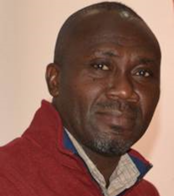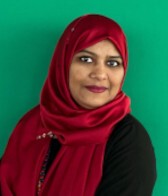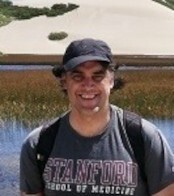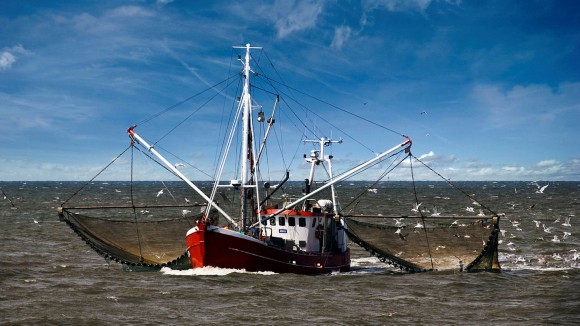Rashid Sumaila, PhD, The University of British Columbia, Canada Dr. Rashid Sumaila is a University Killam Professor at the Institute for the Oceans and Fisheries, and the School of Public Policy and Global Affairs, University of British Columbia. His research focuses on bioeconomics, marine ecosystem valuation and the analysis of global issues such as fisheries subsidies, marine protected areas, illegal fishing, climate change, marine plastic pollution, and oil spills. Simply put, the whole world is Sumaila’s work place as he has experience working in 6 continents. Dr. Sumaila received his Ph.D. (Economics) from the University of Bergen, Norway and his B.Sc. (Quantity Surveying) from the Ahmadu Bello University, Nigeria. Sumaila has won several awards including the 2021 SSHRC Impact Award in the Partnership Category; the 2017 Volvo Environment Prize and is a Fellow of Royal Society of Canada.
Dr. Rashid Sumaila is a University Killam Professor at the Institute for the Oceans and Fisheries, and the School of Public Policy and Global Affairs, University of British Columbia. His research focuses on bioeconomics, marine ecosystem valuation and the analysis of global issues such as fisheries subsidies, marine protected areas, illegal fishing, climate change, marine plastic pollution, and oil spills. Simply put, the whole world is Sumaila’s work place as he has experience working in 6 continents. Dr. Sumaila received his Ph.D. (Economics) from the University of Bergen, Norway and his B.Sc. (Quantity Surveying) from the Ahmadu Bello University, Nigeria. Sumaila has won several awards including the 2021 SSHRC Impact Award in the Partnership Category; the 2017 Volvo Environment Prize and is a Fellow of Royal Society of Canada.
Denis Aheto, PhD, University of Cape Coast, Cape Coast, Ghana
Lubna Alam, PhD, The University of British Columbia, Canada Dr. Lubna Alam’s academic journey commenced with a Bachelor of Science (B.Sc.) in Fisheries from the University of Rajshahi, Bangladesh. She earned her Master of Science (MSc) in Marine Science and later her Doctor of Philosophy (Ph.D.) in Ocean Science from the National University of Malaysia (UKM). During the years 2013 to 2023, Dr. Lubna served as a Research Fellow and Senior Lecturer at the Institute for Environment and Development (LESTARI) of the National University of Malaysia. She is an Executive Committee member of OWSD-UNESCO (Organization for Women in Science for the Developing World)-Malaysia Chapter and was appointed as the Adjunct Professor-Research Fellow at Universitas Airlangga, Indonesia. Dr. Lubna is currently employed as a Research Scholar at the Institute for Ocean and Fisheries at the University of British Columbia in Canada.
Dr. Lubna Alam’s academic journey commenced with a Bachelor of Science (B.Sc.) in Fisheries from the University of Rajshahi, Bangladesh. She earned her Master of Science (MSc) in Marine Science and later her Doctor of Philosophy (Ph.D.) in Ocean Science from the National University of Malaysia (UKM). During the years 2013 to 2023, Dr. Lubna served as a Research Fellow and Senior Lecturer at the Institute for Environment and Development (LESTARI) of the National University of Malaysia. She is an Executive Committee member of OWSD-UNESCO (Organization for Women in Science for the Developing World)-Malaysia Chapter and was appointed as the Adjunct Professor-Research Fellow at Universitas Airlangga, Indonesia. Dr. Lubna is currently employed as a Research Scholar at the Institute for Ocean and Fisheries at the University of British Columbia in Canada.
Sebastian Villasante, PhD, University of Santiago de Compostela, Spain Dr. Sebastian Villasante is a Professor of Economics, Distinguished Researcher and Director of the EqualSea Lab at University of Santiago de Compostela (Spain), funded by the European Research Council Consolidator Grant, and a Karl-Göran Mäler scholar at The Beijer Institute of Ecological Economics. He is an international leader in developing methods to understand pathways for transformative changes of global fisheries and seafood systems. Dr. Villasante is also actively involved in international and regional initiatives that bridge science and policy, providing advice to governments, the fisheries sector and ONGs. He is currently a Coordinating Lead Author of the IPBES Transformative Changes Global Assessment, Co-Chair of the PECS Program on Ocean Equity for Sustainable Futures, and co-author of the Global Tipping Points Report 2023.
Dr. Sebastian Villasante is a Professor of Economics, Distinguished Researcher and Director of the EqualSea Lab at University of Santiago de Compostela (Spain), funded by the European Research Council Consolidator Grant, and a Karl-Göran Mäler scholar at The Beijer Institute of Ecological Economics. He is an international leader in developing methods to understand pathways for transformative changes of global fisheries and seafood systems. Dr. Villasante is also actively involved in international and regional initiatives that bridge science and policy, providing advice to governments, the fisheries sector and ONGs. He is currently a Coordinating Lead Author of the IPBES Transformative Changes Global Assessment, Co-Chair of the PECS Program on Ocean Equity for Sustainable Futures, and co-author of the Global Tipping Points Report 2023.

